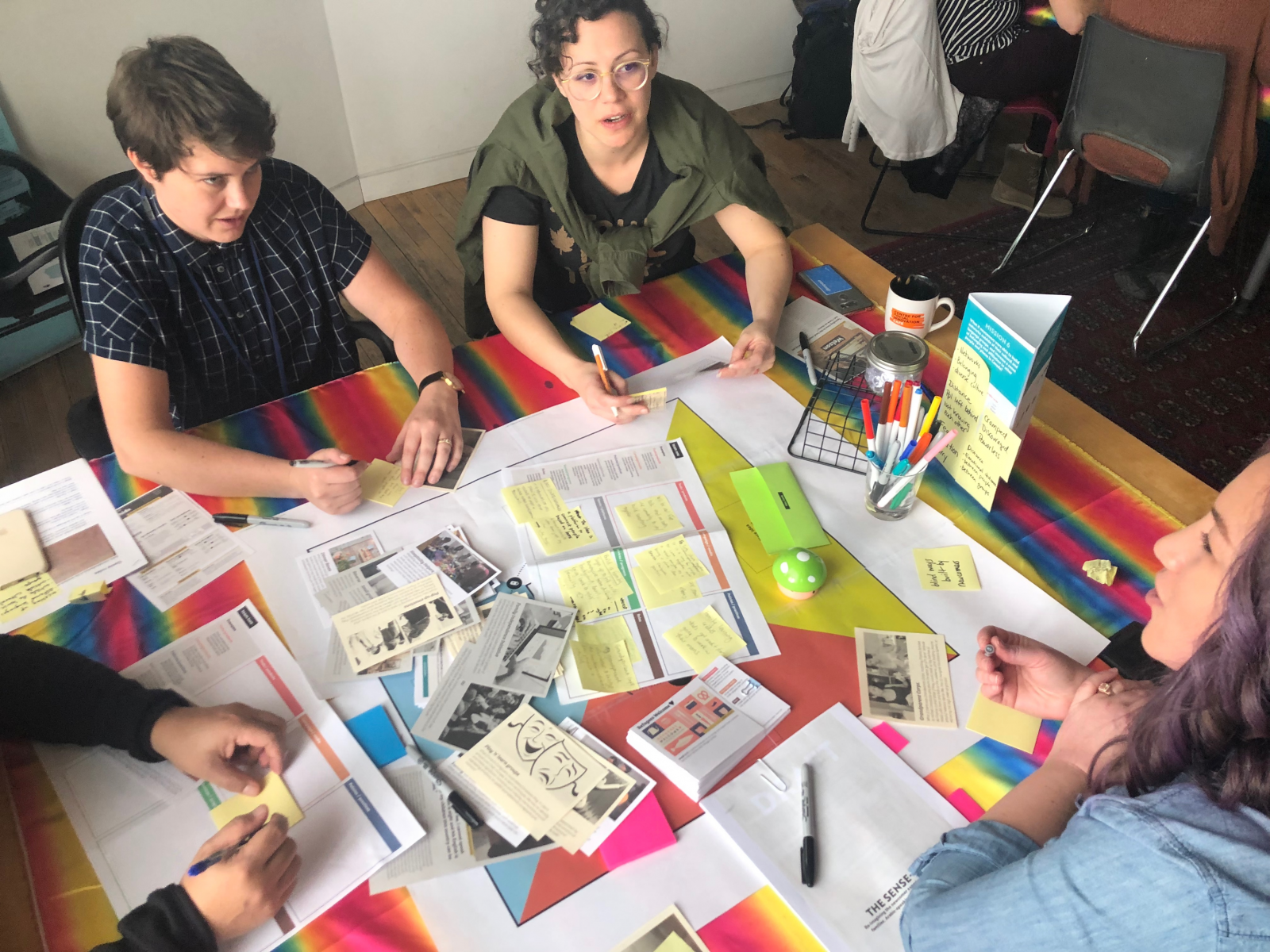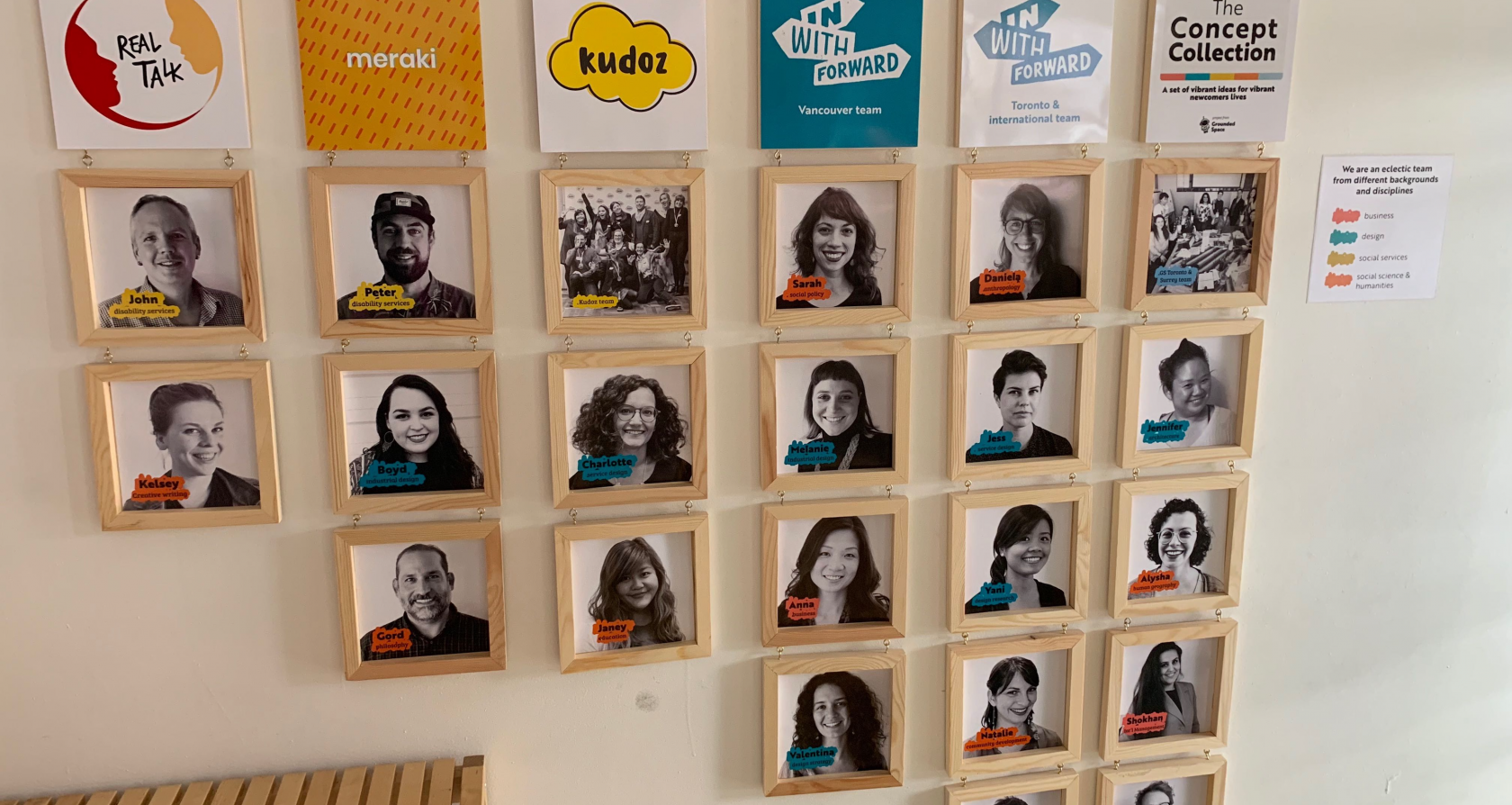Categories
Five ways to join the team
Have 10+ years of experience in service design and a track record launching new products and services? Join us as Design Director to elevate our design practice and turn big ideas into testable propositions and implementable realities with beauty and rigor, whimsy and strategy.
Tired of making yet another app? Itching to apply your service & UX design know-how (plus a pinch of programming skills) to something meaningful? Our Toronto Team is looking for a kick-ass Experience Designer to work with us about a day a week to bring Emotions Library to life. Emotions Library gives newcomers to Canada space to share how they really feel.
Are you an entrepreneurial type adept at organizing people and resources to do sky-is-the-limit things? Our partner organization, posAbiliites, is looking for an Innovation Lead to steward the team behind Meraki, our new subscription box service for folks with disabilities. You’ll be part of our design team and learning network.
Hate being tethered to a desk? Love hitting the streets, meeting people, spotting opportunities, and making (good) shit happen? Take on the role of Community Mobilizer for the newly formed Kudoz Surrey team, and add surprising and scintillating experiences to the learning catalogue. You’ll be on the ground floor of a growing (and award-winning) social venture.
Curious to explore user-led design in the community, not in classrooms? As a UX / Developer Fellow, you’ll gain exposure to user-centered research methods with people with disabilities — and then have the change to translate research insights into MVP digital products alongside our Real Talk team. Real Talk is changing the conversation on sex, love, dating and relationships for people with diversabilities.

Why these aren't just jobs
These five roles aren’t typical jobs. Indeed, we’d argue work is really not the right frame for what we’re all about.
With roots in the Latin word trepaliare — to torture, to inflict suffering or agony — the history of work is largely one of pain and political rebranding. We’re taught work is salvation: the antidote to poverty and marginalization. The irony, of course, is for the impoverished and marginalized to access work, they must first maneuver past a bevy of workers: social workers, disability workers, housing workers, life skills workers, and the list goes on. The modern welfare state, you might say, is more a vehicle for employment than a vehicle for change.
And we want to change that. Re-imagining the jobs to be done, and what work looks like, is key to a more humanistic welfare state. That is a welfare state that distributes (versus exercises) power, agency, control. That is a welfare state that attends to meaning and purpose (alongside safety and security).
To design roles of the future, we try them out ourselves.Our teams have real freedom and flexibility, and are oriented around a bigger purpose, not a series of static responsibilities and tasks. We try to define success in terms of learning and iteration, not activities or targets. We build in weekly time for reflection and recalibration. We look outside ourselves, seeking inspiration and influence from other fields, disciplines, cultures, and countries.
We’re inventing and tweaking our roles and practices as we go. And we don’t always get the balance right. Some weeks are exhilarating and fast-paced; other weeks leave far more questions than answers. The kind of folks that thrive in our teams aren’t seeking constancy or perfection: they love to be challenged, take initiative, work with their heads and their hands; and be part of a collective committed to something far bigger than themselves.
Sound like you or someone you know? We’d love to meet: [email protected]
